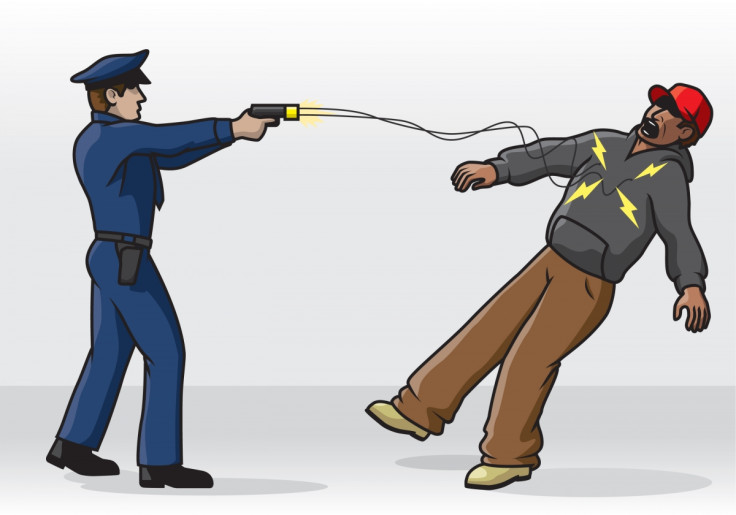Being Tasered impairs memory raising concerns over police questioning and suspect rights

Being Tasered causes cognitive decline comparable to dementia, impairing a person's ability to remember and process information. This, scientists say, could have a profound impact on how a suspect understands their rights at the point of arrest and their ability to answer subsequent questions.
Researchers from Drexel University and Arizona State University note that more than two million people have been Tasered by police since being rolled out across departments in the past decade. Tasers are electroshock weapons that work by firing two small electrodes at a person, which then deliver an electric current of about 50,000 volts. This causes them to become incapacitated through muscle contractions.
While they are estimated to have saved thousands of lives (as a result of police not shooting people with guns instead), very little is known about how these shocks affect a person's cognitive functioning. In a study published in the journal Criminology & Public Policy, researchers – funded by the US Department of Justice's National Institute of Justice – delivered Taser shocks to participants in a randomised control trial.
One hundred and forty two participants were divided into groups of four – a control group did nothing, another hit a punching bag to stimulate a heightened physical state akin to a police encounter, another was shocked and the final group hit punching bags and received shocks.
Their cognitive function was tested before and after the experiment. They found those who had been Tasered showed greater difficulties in verbal learning and memory following the shock. Other effects included concentration problems, anxiety and feeling overwhelmed. The effects lasted around an hour.
Researchers say their findings are very concerning. All the participants were healthy and sober, so the effects on a possible intoxicated or mentally ill person might be farther reaching. It raises questions about the rights of suspects, use of force by police and questioning after being Tasered.

Study author Robert J Kane said: "When police take suspects into custody, they read them their Miranda rights, which state that suspects have the right to remain silent, and anything they say can and will be used against them in a court of law. The findings from this study suggest that people who have been shocked with a Taser may be unable to understand and rationally act upon his or her legal rights, and may be more likely to waive their Miranda rights directly after Taser exposure or to give inaccurate information to investigators. These decisions can have profound impact on an eventual judicial finding of guilt or innocence.
"If suspects are cognitively impaired after being tased, when should police begin asking them questions? There are plenty of people in prison who were tased and then immediately questioned. Were they intellectually capable of giving 'knowing' and 'valid' waivers of their Miranda rights before being subjected to a police interrogation? We felt we had moral imperative to fully understand the Tasers' potential impact on decision-making faculties in order to protect individuals' due process rights."
Concluding, the authors asked: "What would it cost police to wait 60 minutes after a Taser deployment before engaging suspects in custodial interrogations?"
© Copyright IBTimes 2025. All rights reserved.






















